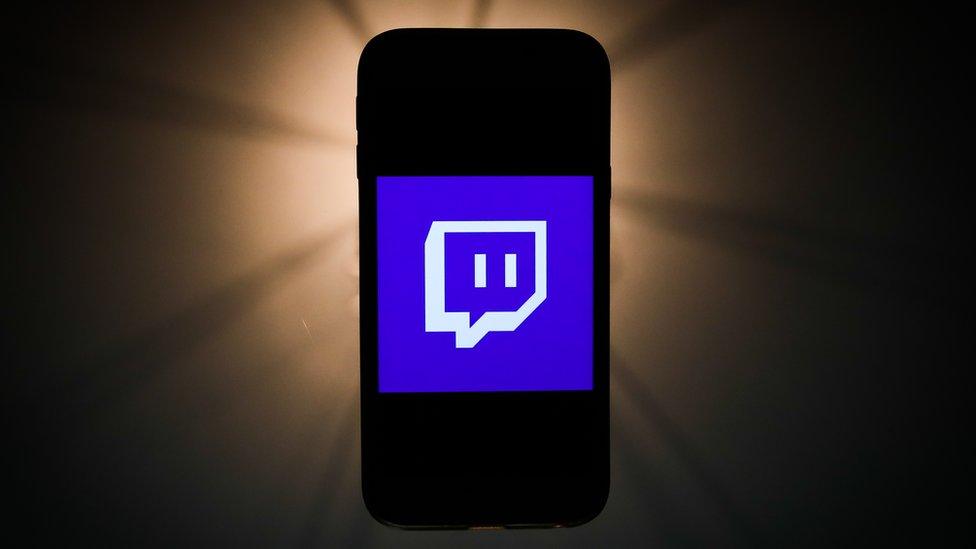Twitch: Concerns over streamers' mental health
- Published
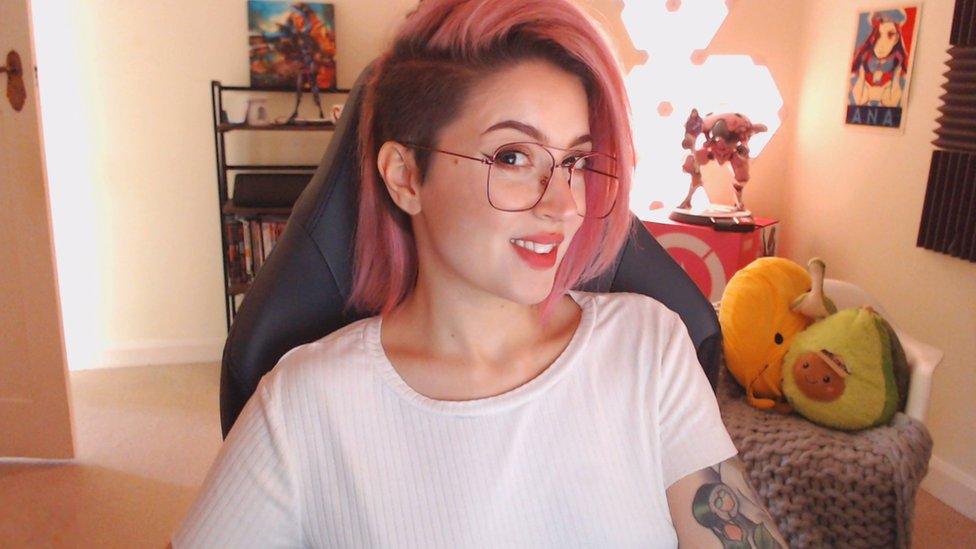
Sam plays first person shooters on Twitch and wants the site to be more pro-active in supporting streamers mental health
Playing video games for a living is a dream job for millions of people.
Streaming on platforms like Twitch has made that a reality for many - with the buzz of interacting live with fans from around the world as you play.
However, for some streamers like Sam, the punishing schedule required to make a living from the site has taken a toll: "I don't like opening my door to anyone anymore, I don't go out, I don't talk to anyone," she explains.
"I don't like talking to people face to face, it's been so long since I've done it."
Sam, known online as Sooshi, quit her job as an office manager two years ago to move house and become a full-time professional streamer - she loves first-person shooters and has built a community of thousands of followers.
She wanted to make a success of that decision which meant spending a lot of time live broadcasting on Twitch: "I decided that I needed to do 10 hours a day everyday, maybe with Sunday off if I was tired.
"Ten hours a day is a lot. You think you'll spend the rest of the time away from the computer and be really productive and energetic - but it's not like that to be honest, you end up obsessing with other social media that you need to keep up with as part of the job."
Sam says the consistent 60+ hours a week of streaming led to anxiety, a loss of confidence and symptoms of agoraphobia.
"Quite early on after going full-time I noticed it having an effect on me," she says. "I wasn't really going out anymore, I don't think I went outside for that first year - maybe to the shop at a push."
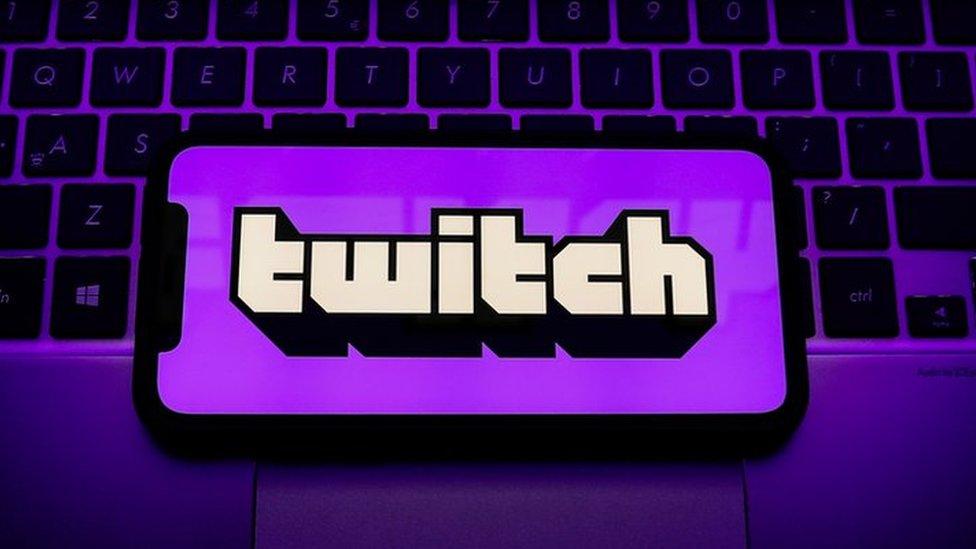
In a statement, Twitch said the safety of content creators was their "top priority"
Twitch is now being criticised for encouraging streamers, like Sam, to spend an unhealthy amount of time on the platform and then not doing enough to support them.
Labour MP Alex Sobel, who is the chairman of Westminster's All Party Parliamentary Group on Video Gaming and Esports, has called on the site to make changes. "The platform really needs to think about its mechanics and changing the financial model to protect the health of streamers," he told us.
"They're set up to encourage people to be on there as long as possible to keep viewers, if they changed the mechanics, it could create a nudge effect to change how streamers operate to protect their health.
"This isn't a new problem, the platform has had a long time to think about this - surely now is the time for some action, they have a duty of care."
In a statement, Twitch said it provides links to mental health resources on its website and is "developing targeted programming to support Twitch streamers with challenges like burnout, boundary-setting, and other pressures that come with a career in online content creation."
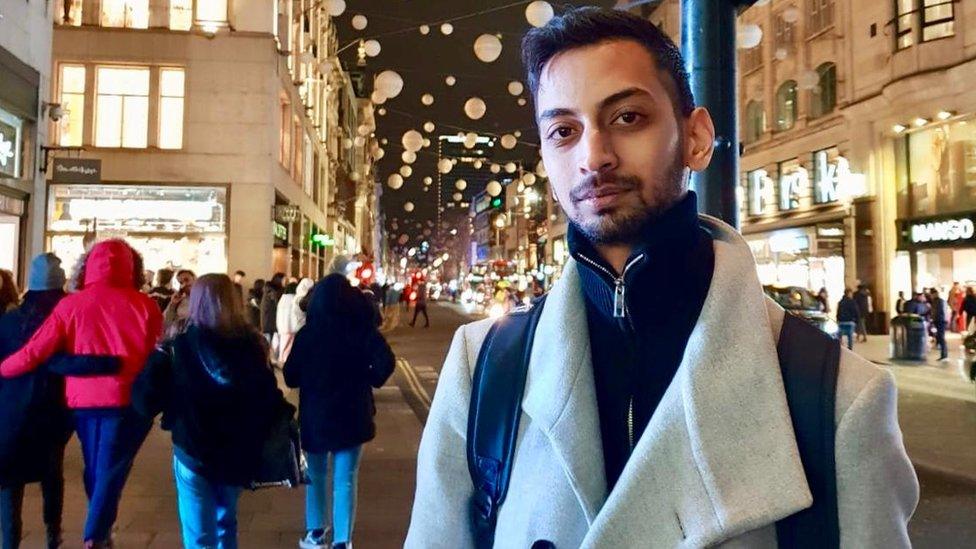
Sid, known as SVB online, plays Overwatch and streams alongside making videos on YouTube - he wants a public conversation about this issue
The MP for Leeds North West also wants to see a policy change from Twitch which would reduce the maximum number of hours streamers can be live for in one sitting.
At the moment Twitch sets a limit of 48 hours and Alex Sopel thinks the site "needs to look at that" - he says Twitch should rethink the way the financial incentives work on the platform. The current model he argues encourages long streaming sessions but needs to change in order to "better protect the health of streamers".
Twitch is the leading live streaming platform in the world for gamers. It's owned by Amazon who spent nearly $1bn (£740m) on the website back in 2014.
It is estimated that 30 million people visit the site every day to watch content from their favourite creators.
For Overwatch streamer Sid, the platform's design is leading aspiring professional streamers to spend an unhealthy amounts of time broadcasting on the site.
He tells us: "It's about being online for as long and as often as you can, so the maximum number of people can tune in.
"The longer you're online the higher your viewership can go, which makes it more likely for you to be seen on the browser, because of the way the site works."
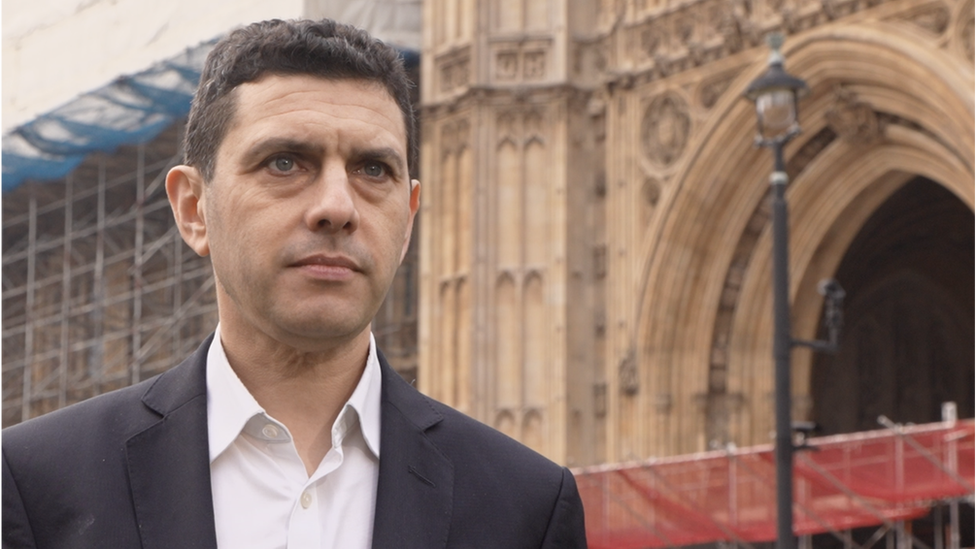
Labour MP Alex Sobel is Chairman of Westminster's All Party Parliamentary Group on Gaming and Esports
'Subathons'
Marathon streaming sessions where people are live for days or even weeks at a time - subathons - have become increasingly popular on the site in recent months as a tool for streamers to grow their channels.
People circumnavigate the 48-hour rule by briefly turning their streams off and on again. In October 2021 streamer GhostInTheMachine was live continually for 76 days. , external
Sid enjoys his job as a content creator and loves to stream. "It's incredible when its working properly, there's nothing like it, but it has to come with a healthy balance," he says.
He sets himself strict limits when it comes to how long he's online for - even though he thinks it restricts how much his channel will grow.
Sid argues that streamers themselves need to have more conversations about safe streaming practices: "People are afraid to criticise subathons, because of how successful they are and how much money the can contribute.
"Nobody wants to be the one to stand up and say 'hey guys should we stop doing these?' because we know they're profitable - but deep down we all probably wish we didn't have to do them."
Both Sam and Sid think Twitch should be proactively offering support to streamers.
Sam says: "They should be getting in touch with streamers to check in on them, a lot of young people fantasise about being a full-time streamer and they're impressionable. They could really harm themselves if they try to keep-up.
"There should be warnings or procedures to stop you from streaming 60 hours in a week - it's too much."
Sid doesn't expect Twitch "to hold my hand or have a personal butler for me every time I stream", but adds a public conversation about changing the financial model to reward streamers for adopting healthy practices would be a good starting point.
It's difficult to quantify exactly how many streamers are having mental health issues due to the number of hours they're online for.
For many people, Twitch is an exciting way to make a living that allows people to connect from across the world - it's also been a place where many have shared their stories of mental health difficulties and found comfort in their communities.
It's reported that 7 million content creators were active every month on the platform in 2021.
A desire to stream sustainably is something that enough people within the gaming community are talking about that it came to the attention of mental health charity Mind who have produced healthy streaming guidelines. , external
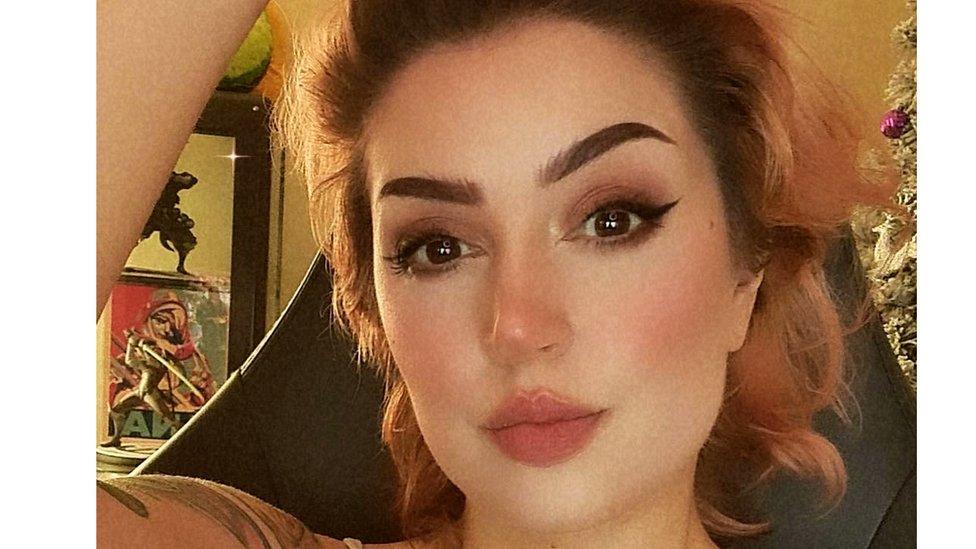
Sam says it's an 'amazing thing' that she's been playing video games for a living
Stephen Buckley, the Head of Information at Mind, told us: "It's really important to consider the self care routines you can apply.
"Have some boundaries put in place, make sure you schedule in breaks to eat proper meals and stick to your planned finish time. Try to finish streams an hour or so before going to sleep and get outside for some exercise."
Mind is also offering to work with Twitch, Stephen told us: "We'd be very up for working with streaming platforms to come up with more guidance, this is relatively new field and we don't have all the answers yet."
In response to this story a Twitch spokesperson said: "Our Creators are at the core of everything we do at Twitch, and their safety is our top priority.
"We're continuously working hard to make Twitch the best place to be a live streamer and build a supportive, engaged community, mental health support is crucial to that.
"Our Twitch Cares page provides mental health resources for any member of the community, and we're developing targeted programming to support Twitch streamers with challenges like burnout, boundary-setting, and other pressures that come with a career in online content creation."
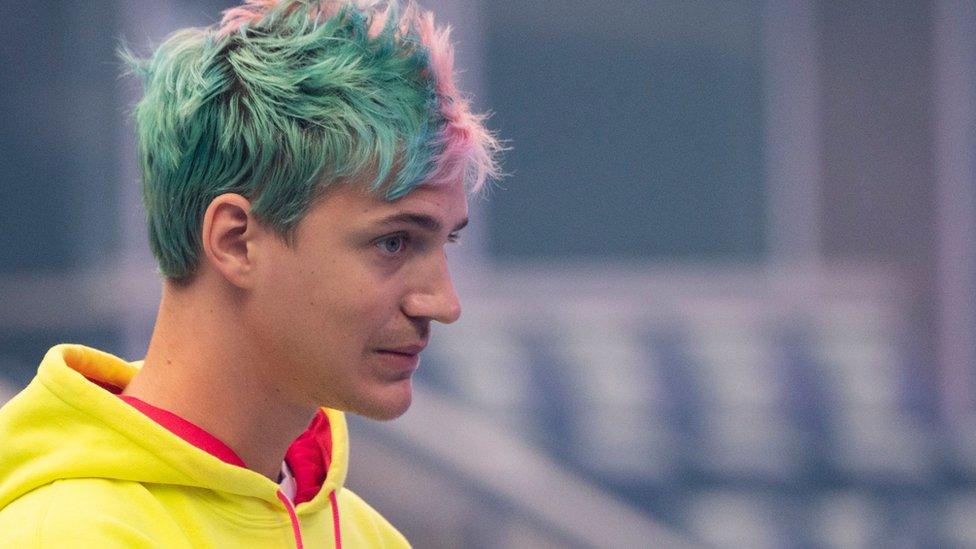
Ninja is one of the top earning streamers on Twitch and also of the most popular streamers on the planet
Streaming is now a core part of the success and popularity of the gaming industry. It keeps fans energised about new releases and engaged with older titles.
The trade body that represents games companies in the UK is also advocating for healthy and safe streaming practices.
Dr Jo Twist OBE, is the CEO of UKIE, and she says that "streamers are a valuable part of the games industry," and need to be looked after.
She told us: "They captivate their audiences by creating engaging content, fostering healthy communities and even doing good for society, such as raising awareness of mental health issues or fundraising for charities.
"It's important that people stream in a sustainable way, to ensure that those benefits remain."
Like video games? Listen to Press X to Continue - the BBC Sounds gaming Podcast:

Related topics
- Published18 January 2022

- Published30 September 2021
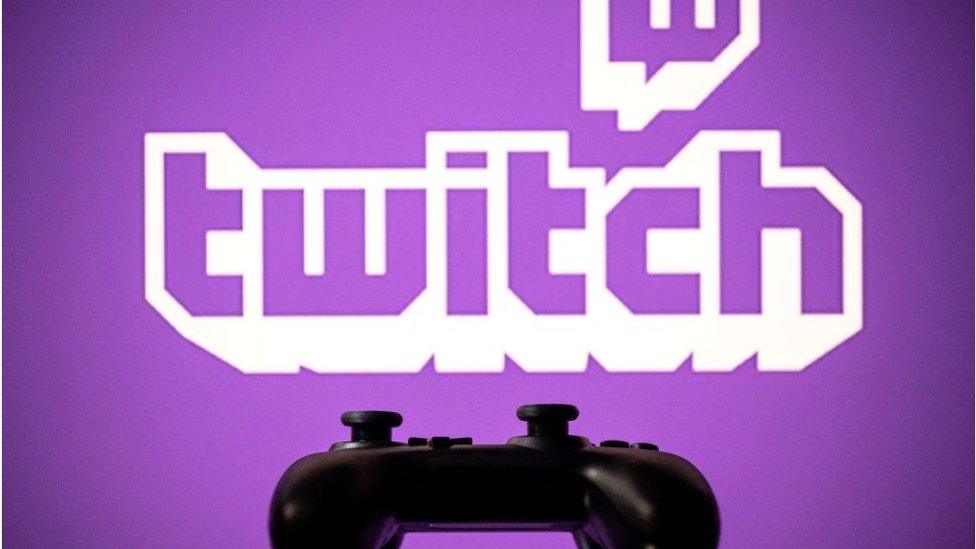
- Published25 June 2020
